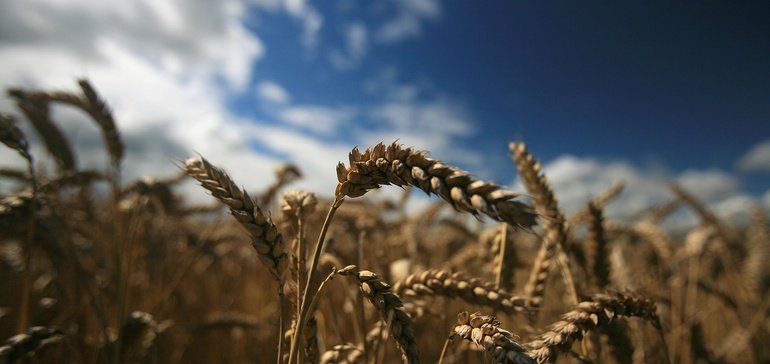Dive Brief:
- Key food commodity prices hit their highest point in nearly a decade as Russia launched its invasion of Ukraine on Thursday. The Chicago Board of Trade May wheat contract rose to its highest point since July 2012, CNBC reported, with corn hitting an eight-month high and the May soybean contract soaring to its highest point since September 2012.
- Combined, the two countries produce 29% of global wheat, 19% of corn and 80% of sunflower seed oil exports, according to Rabobank. Russia is also one of the largest exporters of nitrogen products used to fertilize crops. Prices for urea in New Orleans, a commonly used nitrogen fertilizer, leaped 25% on news of the invasion, according to Bloomberg’s Green Markets.
- The Ukraine conflict is further exacerbating a run-up in prices for food commodities such as wheat, soybeans, oats and corn, which have been beset by extreme weather, labor shortages and a host of supply chain issues over the past year
Dive Insight:
A Feb. 18 analysis by Rabobank sketched out the impact on food commodity prices based on different scenarios for the Russia-Ukraine conflict. In the case of a war, Rabobank projected a 30% jump in wheat prices and 20% increase in corn prices. The combination of war and international sanctions against Russia would be even more impactful, the analysis found. If sanctions remained until July, when the next crop harvest begins, they would trigger demand rationing, which would force a doubling in wheat prices and a 30% increase in corn prices.
That said, inflationary pressures around food commodities have been rising for months. Higher wheat prices helped drive a 2.9% increase in the Consumer Price Index for flour and prepared mixes in January, according to data from the Bureau of Labor Statistics. Prices were up 10.3% over the previous 12 months. One major driver has been “atrocious” weather in wheat-growing areas in recent months, Rabobank’s Carlos Mera, head of agri commodities market research, told Fortune this past November. The CPI for cakes, cupcakes and cookies as well as bread had risen about 6% year over year.
For food manufacturers that rely on wheat and flour as key ingredients, the Ukraine conflict is yet another element for them to weigh as they attempt to control price increases. In its fourth-quarter 2021 earnings this past Wednesday, Mexican bakery giant Grupo Bimbo noted that its adjusted EBITDA margin for the North American region of its business has contracted by 170 basis points, mainly due to growing food commodity inflation, as well as labor and material shortages across its supply chain.
In response to an analyst’s question about how exposed the maker of Thomas’ English muffins, Sara Lee bread and Entenmann’s pastries would be to higher commodity prices triggered by a conflict between Russia and Ukraine, CEO Daniel Servitje said the impact would depend on how long it lasts.
“We’re hedged for some months ahead, but not necessarily for the full year,” he said. Grupo Bimbo also has a plant in both countries.
CFO Diego Gaxiola added that Grupo Bimbo ended 2021 with hedges covering about 70% of its commodity needs for the full year. “Now this doesn’t mean that we will not see any impact, because at the end we will continue to do the hedging strategy,” he said. “And as wheat goes up, we will start to face inflation, probably more an additional inflation, towards the end of the year and 2023.”
Source:fooddive.com


